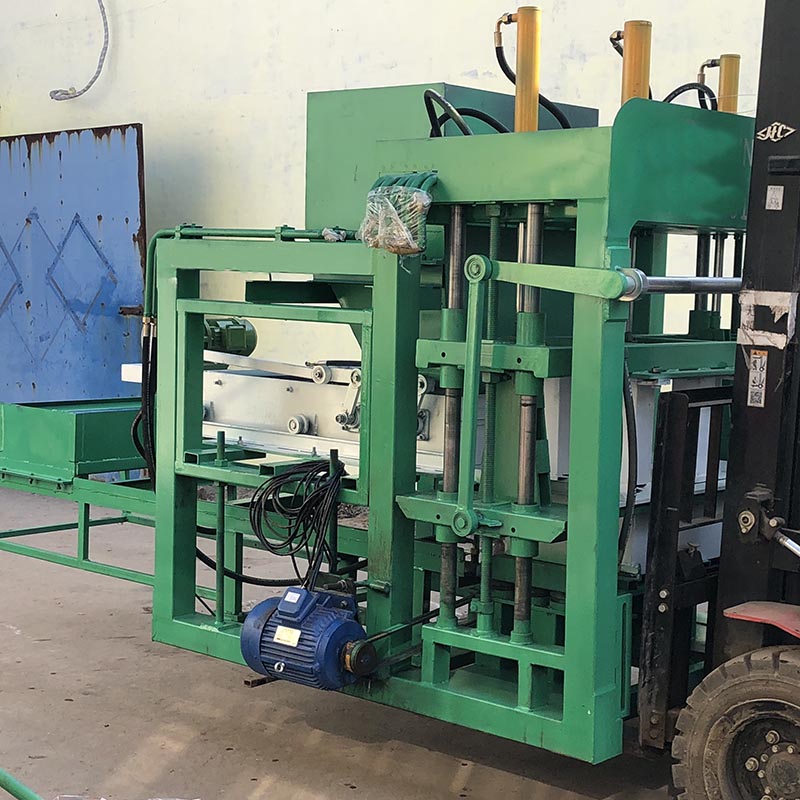
Image source:Aiwei block machine
Introduction
Brick making machines have become indispensable tools in the construction industry, transforming the way bricks are produced and utilized. These machines offer a myriad of advantages that range from increased production efficiency and consistent quality to positive environmental impacts. This article delves into the multifaceted advantages of brick making machines, exploring how they contribute to efficiency, enhance quality, and promote sustainability in construction.
1. Boosting Production Efficiency
One of the most significant advantages of brick making machines is the substantial increase in production efficiency.
- Automated Processes: Modern brick making machines automate various production stages, minimizing manual labor and reducing production time.
- Continuous Operation: Brick making machines operate continuously, ensuring a steady supply of bricks without interruptions.
- High Output: These machines can produce a large quantity of bricks in a relatively short period, meeting construction demands efficiently.
2. Ensuring Consistent Quality
Brick making machines play a pivotal role in maintaining consistent quality across all produced bricks.
- Uniform Shapes and Sizes: Mechanized pressing ensures that each brick has the same dimensions, resulting in a more uniform appearance in construction projects.
- Optimized Compaction: Hydraulic or mechanical pressing mechanisms compact the raw material evenly, reducing the chances of cracks or weak spots.
- Precise Mixing: Automated mixing processes ensure that raw materials are blended thoroughly, leading to bricks with consistent properties.
3. Environmental Benefits
Brick making machines are driving positive environmental changes within the construction industry.
- Resource Efficiency: Modern machines optimize material usage, reducing waste and conserving valuable resources.
- Reduced Energy Consumption: Some machines are designed to operate with energy-efficient processes, lowering overall energy consumption during brick production.
- Recycled Materials: Certain brick making machines incorporate recycled materials like fly ash or industrial waste, reducing the demand for virgin resources.
4. Labor Savings and Safety
Brick making machines mitigate the need for intensive manual labor while enhancing safety conditions.
- Reduced Labor Costs: Automated processes mean fewer workers are required for brick production, leading to cost savings for construction companies.
- Worker Safety: Automation reduces workers’ exposure to physically demanding tasks, contributing to a safer work environment.
- Skilled Workforce: Operators of brick making machines require specialized training, creating opportunities for skilled employment.
5. Customization and Creativity
Modern brick making machines offer customization options that enable creative architectural designs.
- Architectural Freedom: Machines can produce bricks of varying shapes, sizes, and textures, allowing architects to explore innovative designs.
- Decorative Elements: Specialized brick designs can be incorporated to add intricate decorative elements to buildings and landscapes.
6. Consistency in Mass Production
Brick making machines excel in maintaining uniformity, even in large-scale production.
- Large Projects: For mega-construction projects, brick making machines ensure a consistent supply of high-quality bricks, critical for maintaining project timelines.
- Reduced Rejection Rates: Uniformly produced bricks lead to lower rejection rates during construction, minimizing material wastage.
7. Versatility in Application
Brick making machines cater to diverse construction needs, beyond standard brick walls.
- Landscaping: Machines produce bricks for pavements, garden paths, retaining walls, and other landscaping elements.
- Structural Components: Specialized bricks can serve as load-bearing walls, enhancing the structural integrity of buildings.
8. Rapid Urbanization and Affordable Housing
In regions experiencing rapid urbanization, brick making machines contribute to affordable housing initiatives.
- Mass Production: Brick making machines are instrumental in supplying the large quantities of bricks required for affordable housing projects.
- Cost-Effectiveness: Automated processes reduce production costs, making quality bricks more accessible for housing schemes.
9. Future-Ready Technologies
Brick making machines are evolving to incorporate futuristic technologies.
- Automation Upgrades: Continued automation advancements enhance efficiency and precision.
- AI Integration: AI-powered systems offer predictive maintenance and real-time quality control.
- Sustainable Innovations: Machines are incorporating sustainable practices to reduce environmental impact further.
Conclusion
The advantages of brick making machines extend far beyond their ability to shape bricks. From increased efficiency and quality to positive environmental impacts and design versatility, these machines have revolutionized the construction industry. As they continue to evolve with cutting-edge technologies and sustainable practices, brick making machines are poised to redefine the way structures are built, making construction processes more efficient, cost-effective, and environmentally responsible.
